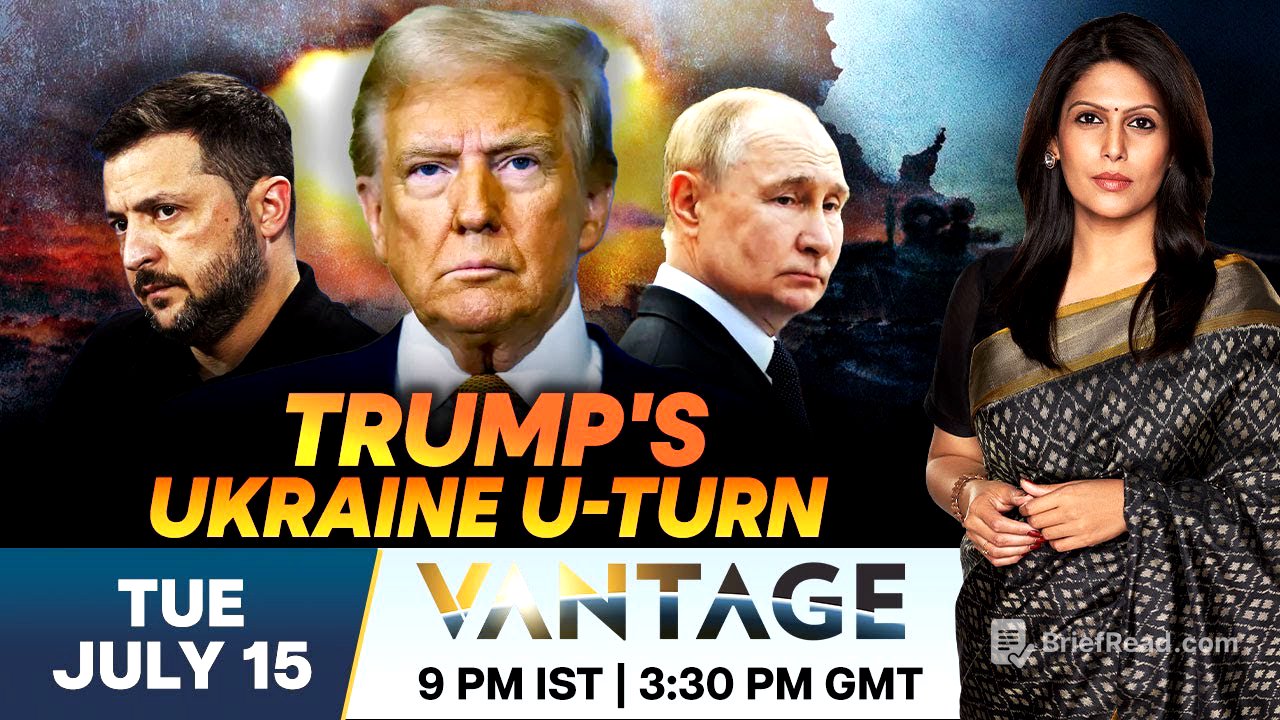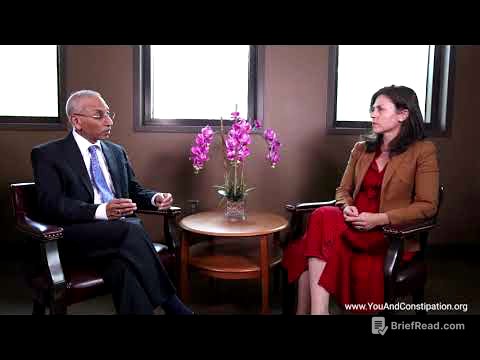TLDR;
This Vantage episode covers a range of global issues, starting with a potential escalation of the Ukraine war due to Donald Trump's changing stance. It then moves to India's space achievements with the return of an astronaut from the ISS, followed by Tesla's entry into the Indian market. The episode also touches on Trump's comments on Gaza, the ongoing conflict in Syria, and the fight against AI-generated content. Finally, it discusses Bitcoin's volatility and what makes a city truly livable.
- Donald Trump's shift on Ukraine and potential impact on India.
- India's space mission and future goals.
- Tesla's challenges in the Indian market.
- Conflicts in Gaza and Syria.
- AI-generated content crackdown.
- Bitcoin's market swings.
- Livability of cities.
Ukraine War Escalation [4:07]
The Ukraine war has been going on for 1,237 days, and there's a chance it might get even more intense. Donald Trump, who used to be all chummy with Russia, is now arming Ukraine and has given Putin a 50-day deadline to end the war or face sanctions. This is a major U-turn from Trump, who previously criticized Ukraine and praised Russia. Now, he's planning to rearm Kiev by selling weapons to NATO allies in Europe, who will then transfer them to Ukraine. Trump is also pushing Ukraine to strike Moscow and St. Petersburg with American weapons, which could lead to a major escalation and potential retaliation from Russia.
Trump's Secondary Sanctions on Russia [10:08]
Donald Trump is threatening secondary sanctions on Russia to put pressure on Putin. These sanctions won't directly target Russia but will penalize anyone doing business with them, potentially hitting countries, companies, and individuals. This could impact India, which is a major buyer of Russian oil and arms. If these sanctions are imposed, India's oil and defense supplies from Russia could be disrupted, forcing New Delhi to find alternatives. This situation tests India's strategic autonomy and puts New Delhi in a tough spot, balancing its relationships with both the US and Russia.
Indian Astronaut Returns from Space [15:46]
Group Captain Shubhanchu Shukla, an Indian Air Force pilot, has returned to Earth after spending time on the International Space Station (ISS). This marks a significant moment for India, as it's the first time an Indian astronaut has been on the ISS. Shukla conducted seven experiments designed by ISRO to study microgravity and its effects on biology. This mission, costing over 600 cr rupees, is crucial for India's Gaganyaan mission, the country's first crude space mission planned for 2027. Shukla's experience and the data collected will provide valuable insights for future space endeavors, solidifying India's position in space exploration.
Tesla Drives into India [23:19]
Tesla is officially selling cars in India after years of back-and-forth with the government. They've opened their first showroom in Mumbai and are offering the Model Y, an electric crossover SUV, imported from China. However, Tesla faces challenges in the price-sensitive Indian market. The Model Y is priced higher than competitors like BYD and Mahindra EVs. Additionally, Tesla's key selling points, such as autonomous driving and the Supercharger network, are not yet fully available in India. To succeed, Tesla may need to consider manufacturing in India or introducing cheaper models to compete with local EVs.
Trump Calls Gaza Oceanfront Property [29:23]
Donald Trump has stirred controversy by referring to Gaza as "oceanfront property" and questioning why Israel gave it up. He suggests turning Gaza into a beach resort and expects a ceasefire within a week. However, his comments disregard the historical context and the current situation, where Palestinians have been displaced and face dire conditions. Trump's plan involves building a "humanitarian city" in Gaza, which has been criticized as a concentration camp. This plan raises concerns about the violation of international rules and the rights of the Palestinian people.
Fresh Clashes in Syria [35:56]
In Syria, fresh clashes have erupted in Sueda, resulting in over 100 deaths. The conflict stems from a tribal feud between the Drews and Bedawin communities, which has been reignited. The Syrian government has intervened, claiming to restore order, but locals believe the regime aims to reassert control over the autonomous area. Israel has also stepped in with air strikes, claiming to protect the Drews community. Despite a ceasefire, the situation remains fragile, highlighting the ongoing violence and sectarian tensions in Syria.
AI Floods the Internet with Junk [41:04]
The internet is being flooded with AI-generated content, or "AI slop," which includes bizarre images, conspiracy theories, and low-quality material. Platforms like YouTube and Meta are cracking down on this inauthentic content. YouTube is updating its rules to punish repetitious and AI-generated videos, while Meta has removed millions of accounts engaging in spammy behavior. The goal is to reward quality over quantity and combat the spread of misleading information. These measures aim to tame the dragon of easy mass production and ensure that authentic storytelling still matters.
Bitcoin Hits a Record High Again [45:42]
Bitcoin has experienced sharp swings, hitting a new record high of $120,000 before slipping back. The rally is fueled by institutional investors and growing support from Washington, with discussions on regulating crypto assets. However, the recent drop has sparked doubts about whether this is a breakthrough moment or just another bubble. Bitcoin remains volatile and prone to sudden swings, raising questions about its long-term stability and whether it can transition from a speculative token to a mainstream asset class.
What Makes a City Livable? [49:27]
The global livability index ranks cities based on how easy it is to live there, with Copenhagen, Vienna, and Zurich consistently topping the charts. A livable city is defined not by what it has, but by what it allows you to do without a struggle. Indian cities often fall short due to traffic, poor air quality, and lack of public spaces. To improve livability, Indian cities need to focus on building for citizens, prioritizing sewage systems over skyscrapers, measuring air quality, and reclaiming sidewalks. The goal is to create cities that people long to come back to, rather than escape from.









